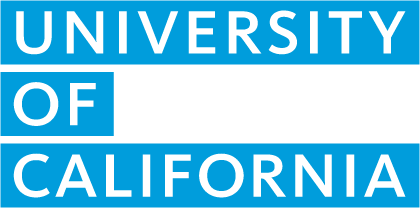English
Course Criteria & Guidance
All courses approved for the English (B) subject requirement will give students full awareness and control of the means of linguistic production -- orally, in writing, and using a range of technologies. Regardless of the course level, approved courses will be expected to stress the reading and writing connection, address each of the core competencies section, and address all of the Common Core College and Career Readiness Anchor Standards in Reading, Writing, Listening and Speaking.
Course Content Guidelines
All courses meeting the English (B) subject requirement will address the following criteria:
- Reading - Require extensive reading of a variety of genres, non-literary as well as literary, including informational texts, classical and contemporary prose and poetry, and literary fiction and non-fiction.
- Excerpts from longer works are acceptable, but reading will include some full-length works.
- Writing - Require substantial, recurrent practice in writing extensive, structured papers directed at various audiences and responding to a variety of rhetorical tasks using evidence taken from complex written sources.
- Assignments and activities will support understanding of rhetorical, grammatical, and syntactical patterns, forms, and structures by asking students to respond to texts of varying lengths in unassisted writing assignments.
- Assignments reflect the idea that writing is a recursive process involving invention, drafting, revision, and editing.
- Courses will address basic issues of standard written English, including style, cohesion, and accuracy.
- Project-based English courses are acceptable, but must include substantial writing assignments for a variety of purposes and audiences.
- Listening and Speaking - Incorporate assignments and activities that allow students to develop essential critical listening skills and provide them ample practice speaking in large and small groups.
Courses categorized as English as a Second Language (ESL) / English Language Development (ELD) will also need to address the following guidelines:
- Be designed as an advanced-level English course for second language learners that includes college-preparatory composition and literature comparable to other mainstream college-preparatory English courses.
- Allow students to develop fluency in academic language.
- Include assignments and activities that require students to accomplish a variety of intellectually challenging tasks, calling on them to demonstrate, at an advanced linguistic level of competence, their ability to use a variety of writing techniques, modes of development, and formal conventions.
Four years of college-preparatory English composition and literature required, integrating extensive reading, frequent writing, and practice listening and speaking with different audiences.
For information on how a student can fulfill UC A-G admissions requirements, please visit the UC Admissions website.
Skills Guidelines
Good writers are most likely careful readers and critical thinkers -- and most academic writing is an informed and critical response to reading. Approved English (B) courses will, at every level, support students to:
- Read extensively and engage in activities and assignments that promote literal comprehension and retention; depth of understanding; awareness of the text’s audience, purpose, and argument; and textual analysis.
- Engage in writing exercises that require responding to varying demands of audience, purpose, genre, and discipline through a recursive process that may involve gathering evidence and evaluating its validity.
- Become active, discerning listeners who make critical distinctions between key points and illustrative examples, develop their ability to convey their ideas clearly, and listen and respond to divergent views.
Honors Course Criteria & Guidance
Honors-level English (B) courses must be demonstrably more challenging than what is offered through a non-honors course, and will fulfill the following criteria:
- General A-G honors-level course criteria.
- Will have at least one year of college-preparatory composition and reading as a required prerequisite.
- Emphasize advanced critical analysis and interpretation in order for students to develop complex written arguments about assigned readings.
- Informal and formal writing assignments will emphasize the stages of composing sustained arguments based on detailed textual analysis: pre-writing, drafting, revising.
- Writing instruction should enable students to express complex and interrelated ideas with clarity and a mature, sophisticated systel.
- Assignments and activities require students to show evidence of facility with a variety of technological platforms.
Core Competencies
The English (B) requirement seeks to ensure that incoming college freshmen are prepared to undertake university-level study; to acquire and use knowledge in critical ways; to think, read, write, and speak critically; and to master literacy skills for classes in all University subjects.
More important than the specific topics covered in approved courses are the general abilities and habits of mind students should acquire through reading, writing, speaking, and other course activities.
- Students are well-informed, thoughtful and creative readers, writers, listeners, and thinkers who incorporate the critical practices of access, selection, evaluation, and information processing in their own original and creative knowledge production.
- They comprehend and evaluate complex texts across a range of types and disciplines and can construct effective evidence-based arguments and convey intricate or multifaceted information.
- They engage with major works of literature, expanding their sense of the variety of human experience in historical and ethical contexts and the range and complexity of human written expression.
- They respond to varying demands of audience, task, purpose, genre, and discipline by listening, reading, writing, and speaking with awareness of self, others, and context.
- They analyze and evaluate a range of informational and literary texts by asking thoughtful questions and generating hypotheses based on the form and validity of evidence, seeing other points of view, and effectively citing specific sources when offering an oral or written interpretation of a text.
- They use technology and digital media to access and evaluate a wide range of information and use digital platforms to write, collaborate, and publish their work.
They understand the ethical dimensions of academic work as grounded in the respect for other informed viewpoints and the body of knowledge that makes up a scholarly discipline. They have a capacity to question and evaluate their own beliefs; to participate in, and contribute to, intellectual discussions; and to advocate for their own learning needs.
